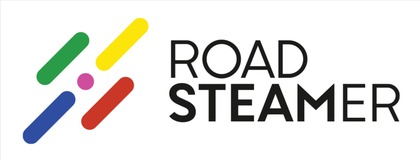Picking up STEAM
Road-STEAMer 's first policy brief
Su questa assemblea
Policy brief summarising the work of the first year of Road-STEAMer, and highlighting four main priority areas.
Now, stakeholders have an opportunity to share their feedback and additional context details, helping the project team in the development of specific policy recommendations.
With "Picking up STEAM", the project team took stock of the work carried out during the first year of the project, focusing in particular on the context and needs, and outlining the work that will inform the development of our STEAM roadmap for science education in Europe.
While the identification of best practices and of policy challenges are yet to be completed, it is already possible to identify four main areas for the development of specific policy recommendations.
For the remainder of the project, we will be working towards refining specific policy recommendations, taking into account the specific policy context and challenges both at EU level as well as in different European countries.
Head to the BLOG section to read more and leave your comments
Scopo dell'azione
Gather feedback and other relevant contextual information from different stakeholders on the priorities outlined in the first policy brief, to help the project team gain a deeper understanding of the multifaceted policy context, and develop specific policy recommendations.
Composizione
We welcome views from different kinds of stakeholders, people who - for different reasons - have an interest in improving educational policy, and STEAM education more specifically. Our targeted stakeholders include:
- School education professionals and organisations
- Formal education learners and their families
- Higher education professionals and organisations
- Higher education students and their families
- Informal and non-formal science learning professionals and organisations
- Informal and non-formal science learners and their families
- Research and innovation professionals and organisations
- Creative industries professionals and organisations
- Artists and arts organisations, arts education professionals and institutions
- The world of entrepreneurship and business
- Education, research and innovation policy makers at various levels
- Citizens, civil society, NGOs and other third sector actors




Condividi: